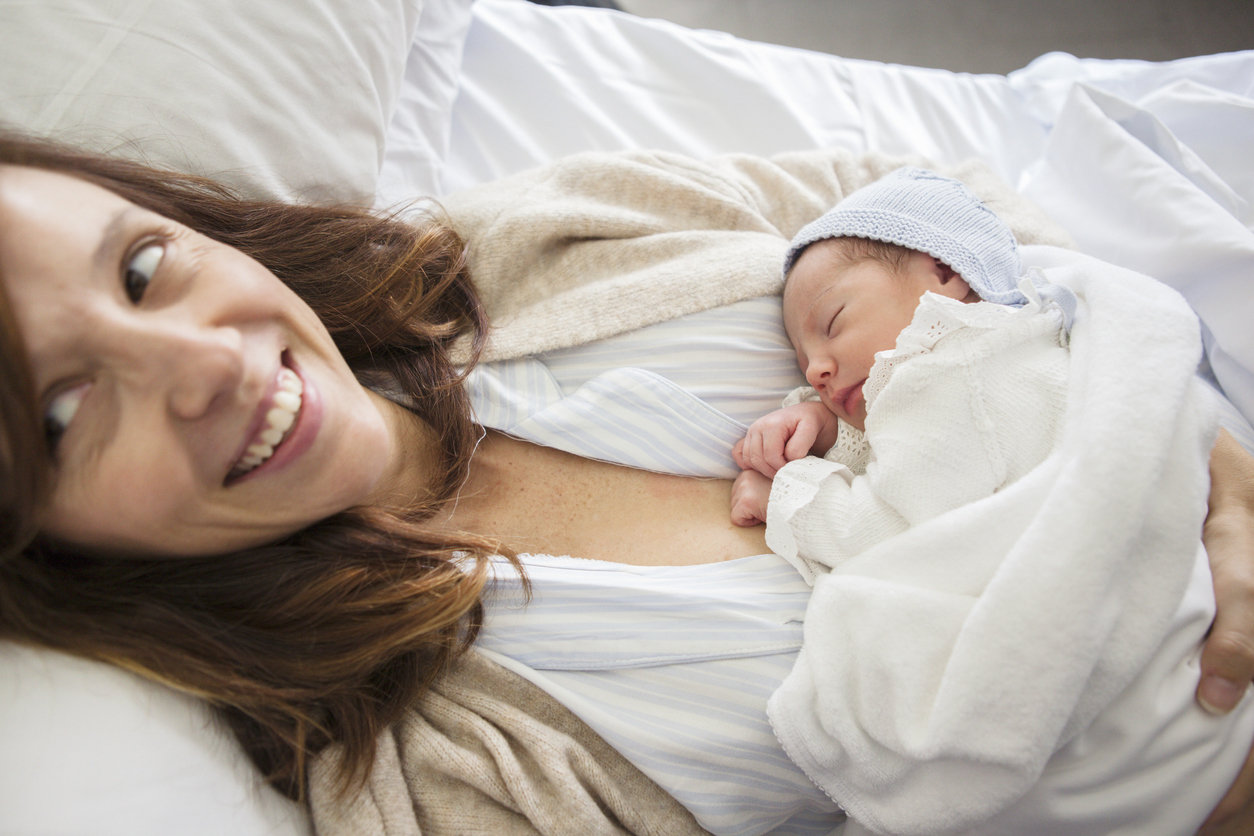Women have long joked about "pregnancy brain" — the forgetfulness, anxiety, and hormonal ups and downs that often accompany being pregnant. It seems to happen to the best of us … as frustrating as it can be at the time. But the phenomenon isn't just an old wives' tale. Studies have actually shown that women's brains look and function differently post-pregnancy. And the latest science proves that these changes take place even sooner than we thought, and they happen for a darn good reason.
More from CafeMom: Pregnant Mom Who Broke Down Sobbing From Gender Disappointment Shares Why She Posted Video
Researchers at the University of Toronto found women experience 'pregnancy brain' because their brains change to help them bond with their babies.
The study, published in the journal Child Development, analyzed data on 39 pregnant women between ages 22 and 39 from the Toronto area. The women visited the lab for tests in their third trimesters and then again between three and five months after giving birth. While wearing a cap that measures brain activity, the women were shown 40 images of happy and infant and adult faces.
During each visit, the women were also asked to report whether they had symptoms of anxiety and depression. During the second visit, they were asked questions about how they were bonding with their babies.
By comparing women's brain activity at these two different points, researchers were able to note changes in the women's cerebral cortexes.
The cerebral cortex is the layer of grey matter that plays a key role in information processing. From pregnancy to postpartum, not only did women in the study register more brain activity in their cerebral cortex in response to the images of infants, but women who showed more brain activity also reported having stronger bonds with their babies.
"Our findings support the idea that, in the brain, responses to infants' cues change over the course of pregnancy and early motherhood, with some mothers showing more marked changes than others," explained David Haley, professor of psychology at the University of Toronto, who led the study. "This variation in turn is associated with mothers' reports of their emotional bonds with their babies."
Previous studies have noted changes in the cerebral cortex, but this is the first that has been able to link the changes to maternal bonding.

The study is small and relied on mothers' own observations of their bonds with their babies, so more research is needed to back up the findings. Still, the results point to the idea that brain changes that take place are vitally important. Previous studies have found that the changes also make brains more efficient and that the changes can last for years after a woman gives birth.
More from CafeMom: How Preparing To Conceive Taught Me To Love My Body
For their next study, researchers want to test whether the brain changes determine the mother-infant relationship or vice versa.
"The next steps in our research are to examine how emotional and cognitive networks in the brain communicate, and whether changes in neural connectivity between these networks are related to how parents understand and respond to the emotional signals of their infants," said Joanna Dudek, a graduate student at the University of Toronto who coauthored the study.




